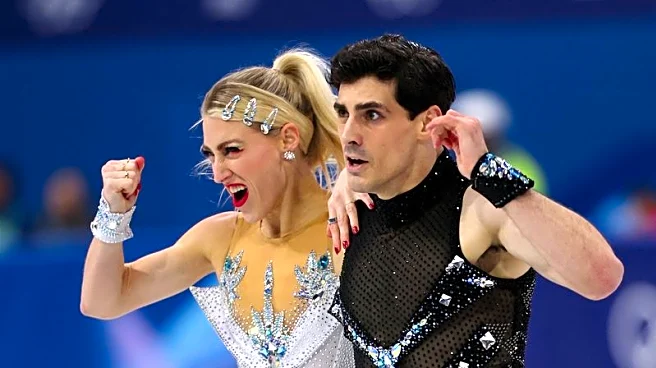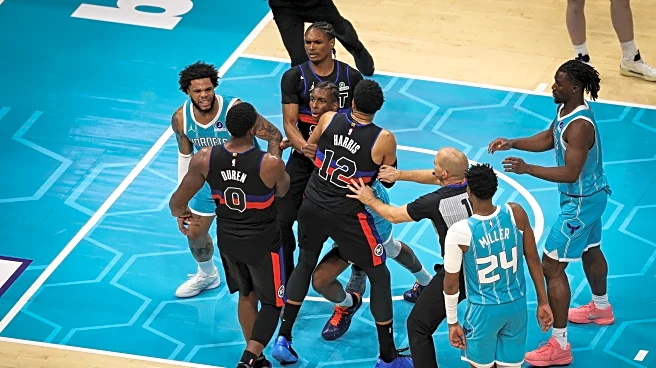Rapid Read • 7 min read
Douglas Santos, a defender for Zenit, has reiterated his aspiration to rejoin the Brazil national football team. Despite acquiring Russian citizenship last autumn, Santos remains committed to his dream of wearing the Brazil jersey again. He has previously been an Olympic champion and played a friendly match for Brazil in 2016. Santos was recently included in the preliminary list for Brazil's national team as they prepare for the 2026 World Cup qualifiers. His Russian citizenship, granted by a decree from President Vladimir Putin, allows him to play in the Russian championship without being considered a foreign player.
AD
Santos's situation highlights the complexities athletes face when balancing national allegiances and career opportunities. His Russian citizenship opens doors in the Russian league, potentially enhancing his career prospects. However, his desire to play for Brazil underscores the emotional and cultural significance of national representation in sports. This scenario is significant for international sports diplomacy, as it reflects broader themes of identity and belonging. Santos's decision could influence other athletes in similar positions, impacting team compositions and international competitions.
Santos's inclusion in Brazil's preliminary list for the World Cup qualifiers suggests potential participation in upcoming matches. His performance in the Russian league will likely be scrutinized by Brazil's selectors. If Santos continues to excel, he may secure a spot in the final team, fulfilling his dream. Meanwhile, his dual citizenship may lead to discussions about eligibility rules in international sports, potentially affecting future policies.
The case of Douglas Santos raises questions about the intersection of sports and national identity. It prompts a discussion on how athletes navigate personal dreams and professional realities, especially when citizenship changes. This could lead to broader conversations about the role of sports in cultural diplomacy and the impact of globalization on athlete careers.
AD
More Stories You Might Enjoy












